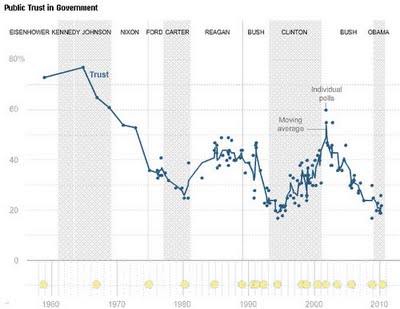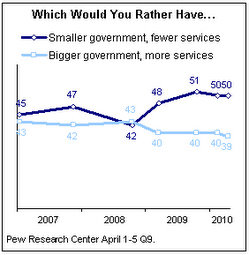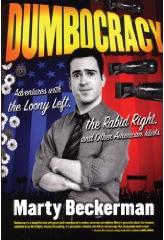In Washington, D.C., a jury ignored a military veteran's obvious violation of the city's draconian gun laws, setting him free with only a slap on the wrist. In LaSalle County, Illinois, a medical marijuana user found with 25 pounds of the plant didn't even get the slap; jurors chatted with him after finding him not guilty. While we can't know for sure, in both cases
jury nullification was likely at work as regular people serving an important role in courtrooms exercised their power to quash laws they found repugnant.
Corporal Melroy H. Cort, who lost his knees to an improvised bomb in Ramadi, Iraq, was en route to Walter Reed Hospital from his home in Columbus, Ohio, when his car got a flat. He and his wife, Samantha, pulled over for repairs, at which time Cort, who has a concealed carry permit at home, retrieved his 9mm pistol from his glove compartment and put it in his pocket.
Cort's gun was spotted by somebody who called police, and Cort rapidly gained a rapid education in D.C. notoriously strict firearms laws. He was charged with carrying a pistol without a license, possession of an unregistered firearm and possession of ammunition. He spent the night behind bars for having the nerve to possess a weapon in a city that, while it has improved since its nadir in the 1990s, still has about triple the national average rate of violent crime.
Despite its crime rate, D.C. has done its best to deny residents the right to legally defend themselves. This is the city that was taken to court for its restrictions -- and lost, resulting in the landmark case of D.C. v. Heller, which reaffirmed that the Second Amendment protects the individual right to keep and bear arms. Depite that loss, city laws remain extremely restrictive, and Cort had clearly run afoul of local law.
But an amazing thing happened in court. According to the Washington Post:
After being deadlocked twice, a D.C. Superior Court jury yesterday acquitted a Marine amputee on felony charges of gun possession stemming from an arrest while he was on the way to Walter Reed Army Medical Center. ...
Although acquitting him of the gun charges, the jury found Cort guilty of possessing ammunition, a misdemeanor. He was sentenced to time already spent in the D.C. jail.
It's hard to avoid the conclusion that the jury ultimately saw no benefit in applying the city's tight gun laws to a handicapped man who was just passing through. Maybe they even questioned the overall propriety of the laws. In the end, they rather clearly ignored the law to set Cort free with just a nominal slap on the wrist -- which he plans to appeal.
And that brings us to the case of Loren J. Swift. Swift was arrested during a peaceful encounter at his home with a sizeable quantity of marijuana and plants -- reportedly 25 pounds and 50 pounds, respectively. He had been convicted once before for marijuana possession. A Navy veteran, Swift says he smokes marijuana to relieve pain and alleviate post-traumatic stress disorder, but Illinois does not yet have a medical marijuana law.
Twenty-five pounds of grass, plus plants, in a state where marijuana is strictly illegal. That doesn't sound good for Swift. Except ...
On Wednesday in La Salle County Circuit Court, several jurors shook hands with an emotional Loren J. Swift after finding him not guilty of a marijuana charge that would have sent him to prison. ...
In the courthouse lobby, after the verdict, two male jurors talked and laughed with Swift and his attorney, Randy Gordon; one of the jurors patted Swift on his back. However, one of these jurors refused to admit he was a juror when The Times approached him for comment about the verdict; the other juror didn't deny he was indeed a juror, but nevertheless refused to talk.
Not surprisingly, observers at Swift's trial openly speculated about jury nullification. Once again, it's hard to avoid the conclusion that jurors sympathized more with the defendant than with the law, so decided to ignore what the statute books say.
In doing so, in both cases, justice prevailed. So did liberty.
We don't know what was going through the jurors' heads in the Cort and Swift trials, or whether any jurors were even familiar with jury nullification. But it's not that difficult a concept to invent from scratch, if necessary.
Historically, as President John Adams put it, it has been the juror's "duty ... to find the verdict according to his own best understanding, judgment, and conscience, though in direct opposition to the direction of the court." Unfortunately, you won't come across that quote from Adams in many modern courtrooms. Government officials don't like being second-guessed by the hoi polloi, so the tradition of independent juries has been allowed to wither from neglect. Few jurors ever learn about the traditional power of juries.
But you don't need to know history to have an inkling that the rights of the individual sometimes violate the dictates of the law -- and then decide to come down in favor of individual rights. And individual rights are an endangered species in a nation increasingly hemmed in by laws and regulations that seem to render ever more of our daily activities either mandatory or forbidden. They need as much protection as they can get.
To preserve what's left of our liberty, jury nullification is a good and powerful tool for checking government power. But since it is frequently discouraged by judges and prosecutors jealous of their prerogatives, it's generally exercised on the sly -- often by jurors unaware that they're doing exactly what was originally intended. For that reason, we'll likely never know exactly when nullification is being exercised.
But we can celebrate it when we see it.
Labels: drugs and prohibition, firearms/Second Amendment, sock it to the state






